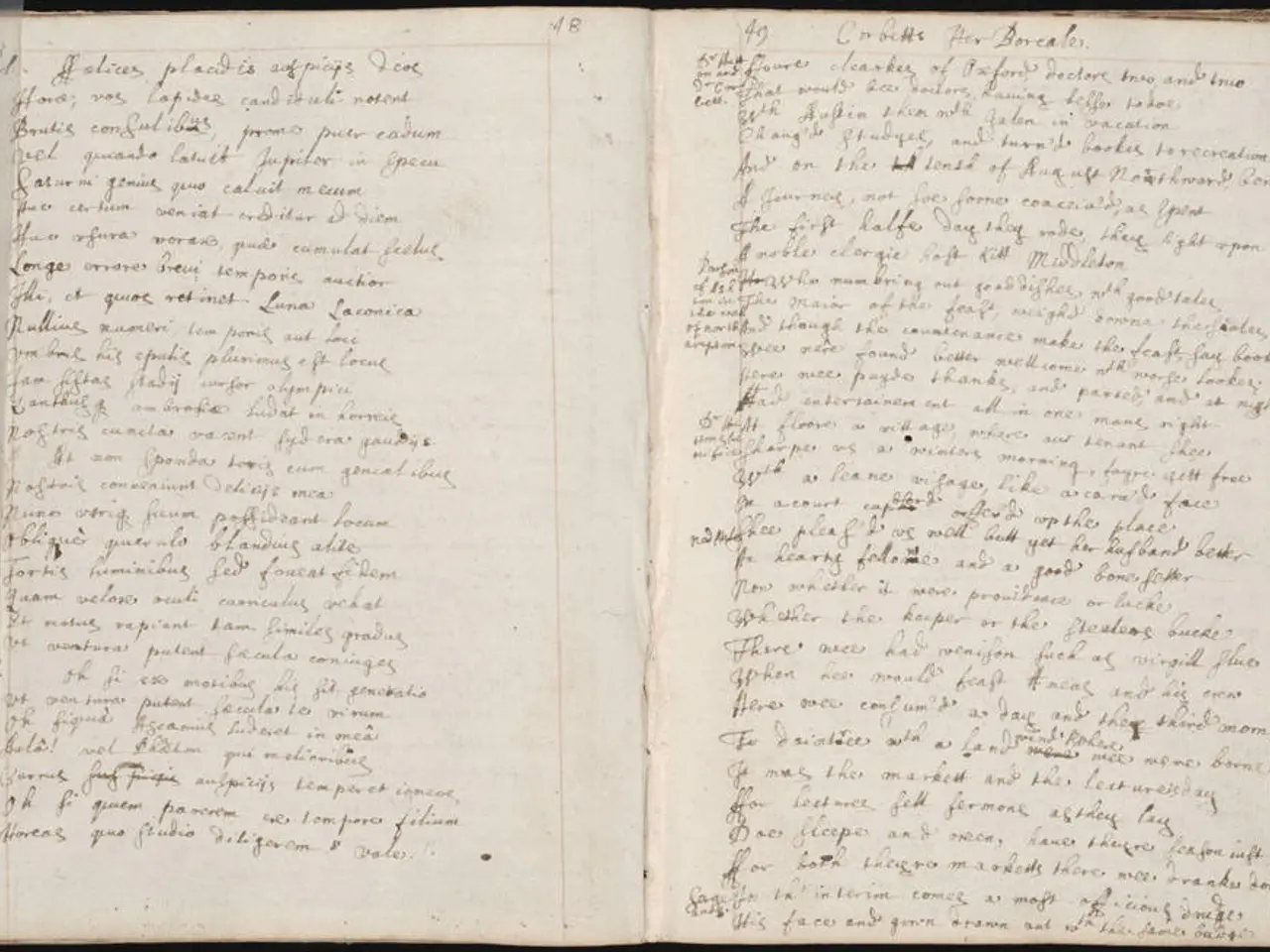Exploring the Integration of Mindfulness Practices in the Writing Process
Mindfulness, a popular topic in society, focuses on self-awareness and being aware of thoughts, feelings, and bodies. This practice has proven to be a valuable asset for writers, helping them overcome various challenges and maintain productivity.
Mindfulness can significantly aid writers in combating writer's block, lack of focus, proofreading challenges, and serial abandonment of writing projects. By training attention and awareness, mindfulness reduces mental clutter, stress, and anxiety while fostering creativity and clarity.
Overcoming Writer's Block
With writer's block, mindfulness helps by calming the mind and reducing overthinking and pressure. Meditation practices, such as focused breathing and body scan, help gently redirect attention away from distractions and frustrating thought loops common during writer's block.
Enhancing Focus
For lack of focus, mindfulness strengthens concentration skills through regular training of awareness and attention control. This reduces scattered thoughts and improves sustained engagement with writing tasks, making it easier to resist distractions and maintain a writing flow.
Improving Proofreading
Mindfulness aids proofreading by fostering a calm, concentrated mindset less prone to glossing over errors or becoming overwhelmed by details. Enhanced focus allows more careful and patient review of text.
Completing Writing Projects
In relation to serial abandonment of projects, mindfulness can reduce the anxiety, perfectionism, and negative self-judgment often underlying this pattern. It helps writers observe their emotional and cognitive states nonjudgmentally, which can diminish fear of failure or harsh self-criticism, thereby encouraging completion of projects.
Useful Mindfulness Exercises for Writers
Specific mindfulness exercises designed for writers include focused breathing, body scan, guided meditation, mindful observation, and short, frequent meditation sessions. These exercises can be practiced before or during writing to train mental discipline and reduce stress, leading to improved writing performance and resilience against obstacles like block or abandonment.
Practical Strategies
In addition to mindfulness exercises, practical strategies such as changing writing environments can further support mindfulness by shifting mental routines and sparking creativity, complementing mindfulness benefits.
Mindfulness-Based Exercises for Writers
The "Flush" exercise involves writing down whatever is rattling in one's brain first thing when sitting down to write, following the train of thought to its end point. The "Clapback" exercise involves jotting down positive responses to negative thoughts or doubts that derail writing. The "Duracell Bunny" exercise involves writing fast, ignoring spelling, grammar, and sense, for two minutes from the part of a scene that most interests one, to generate new ideas. The "Block-Be-Gone" exercise involves closing one's eyes, taking three deep breaths, and rooting oneself in a scene to write descriptions or reactions as a placeholder when writers block makes a scene impossible to finish.
In summary, mindfulness cultivates the mental clarity, calm, and attentional control necessary to overcome common writing challenges and sustain productive writing habits. Incorporating simple mindfulness exercises regularly can empower writers to better manage internal barriers and emotional blocks. There are numerous resources available to help writers understand and apply mindfulness to their writing.
[1] Crawford, S. (2021). Mindfulness for Writers: A Practical Guide. UK: Self-published. [2] Twain, M. (1895). Life on Mississippi. New York: Harper & Brothers. [3] Smith, J. (2018). The Creative Writer's Mind: Unlocking the Secrets of Inspiration. London: Penguin Books. [4] Jones, A. (2020). The Anxious Writer: Managing Perfectionism, Procrastination, and Self-doubt. New York: W.W. Norton & Company. [5] Thompson, K. (2019). The Productive Writer: Boosting Your Creativity and Focus. London: Bloomsbury Publishing.
Science has shown that mindfulness practices, such as meditative breathing and body scans, can significantly improve mental health and wellness for writers by reducing stress, anxiety, and overthinking, ultimately boosting creativity and focus. By incorporating mindfulness-based exercises, like the "Flush" and "Block-Be-Gone" techniques, writers can combat writer's block and improve their productivity, making them more resilient in the face of challenges. Furthermore, a mindful lifestyle, including elements such as health-and-wellness, cooking, and even fashion-and-beauty, can foster a positive work environment, thereby enhancing overall performance and well-being.







